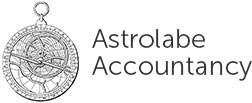Budget 2018-19: Implications for Small Business
 The Treasurer handed down Budget 2018-19 at 7:30 pm on Tuesday 8 May 2018. While there were some welcome changes, most announcements involve more red tape designed to prevent tax evasion.
The Treasurer handed down Budget 2018-19 at 7:30 pm on Tuesday 8 May 2018. While there were some welcome changes, most announcements involve more red tape designed to prevent tax evasion.
The good news
Instant asset write-off for small business
Budget 2018-19 has extended the immediate deduction for depreciating business assets costing less than $20,000 for another year. This popular concession for small businesses will now remain in place until 30 June 2019.
It is important to note that this provision only allows small businesses to claim a tax deduction earlier. It does not provide any additional tax deduction measured over the life of the asset. And it certainly is not a handout from the government!
Personal income tax cuts
The government proposes to cut personal income tax and reduce the number of tax brackets from four to three over the next seven years. This is to combat so-called “bracket creep”. Without these changes inflation will cause the average taxpayer to move from the 32.5% tax bracket to the 37% bracket.
The first changes will take effect from 1 July 2018. From 1 July 2024 the 37% tax bracket will be abolished.
To get an idea of the tax you will save, head to the government’s Tax Relief Calculator.
In addition the expected increase in the Medicare levy from 2% to 2.5% of taxable income will not go ahead.
Self-managed superannuation funds
Self-managed superannuation funds (SMSFs) are sometimes part of small business structures. They provide a means of using money locked up until retirement to own business premises that can be leased to the business. (There is a lot more to this than we can put into a few words. Get very good advice before thinking of this.)
The problem has often been the 4-member limit of an SMSF. Family businesses often have more than four owners, making it necessary to set up two or more SMSFs. The good news is that from 1 July 2019, the maximum number of members of an SMSF will increase to 6. Note that for an existing fund you will almost certainly need to update the trust deed before you can have more than four members.
Another proposal in the budget is to allow SMSFs with a history of good record keeping and compliance to be audited every three years instead of annual. We will have to see whether this gives any advantage; if the auditor has to audit the last three years every three years the compliance burden may be worse than an annual audit!
The not-so-good news
The budget contains many anti-avoidance measures which will impose additional compliance obligations on law-abiding businesses:
Expanded taxable payments reporting
From 1 July 2019 you will have to annually report payments to contractors in the security, road freight transport, and computer system design industries. Originally the taxable payments reporting system only applied to contractors in the construction industry. The 2017-18 budget expanded it to cleaners and couriers from 1 July 2018.
Limit on cash payments
From 1 July 2019 you may no longer pay for goods and services in cash in amounts exceeding $10,000. Larger payments you will have to make by cheque or electronic transfer.
No tax deduction if you don’t meet withholding obligations
From 1 July 2019 you may no longer claim a tax deduction for payments to employees if you have not withheld tax according to the PAYG withholding requirements. The same applies to payments to contractors that have not provided their ABN. If you do not withhold 47% tax from the payment you may not claim a tax deduction.
No tax deductions for holding vacant land
From 1 July 2019 you may not claim a tax deduction for the costs of holding vacant land that you do not actively use in your business. This would include expenses such as interest and council rates. This is not really a new rule so much as a clarification of existing principles. The government wants to reduce tax incentives for land banking.
Other anti-avoidance measures
The Budget provides the Australian Taxation Office with $130 million in additional funding for them to increase audits on individual taxpayers and their tax agents.
The Budget also strengthens the Division 7A anti-avoidance rules to make the use of bucket companies even less viable. From 1 July 2019 the Division 7A rules will catch unpaid present entitlements from a trust to a private company. An unpaid trust distribution will have to be paid to the company over time as a complying loan. Failing this, it will be taxed as a dividend in the hands of a shareholder.
